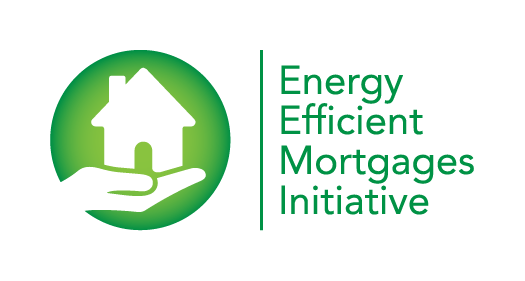Current and future developments of the market framework for accelerating growth of energy efficiency – learnings from Scotland and Trento
The report explores market frameworks to boost energy efficiency investments, specifically through the initiatives in Scotland and the Italian Province of Trento. It provides a strategic overview of policies, challenges, and solutions to support energy efficiency and decarbonization goals, using examples from both regions. The report is part of the Energy Efficiency Mortgage Market Implementation Plan (EeMMiP), funded by the EU’s Horizon 2020 program.
Key Pillars and Objectives
The framework revolves around seven pillars: delivery mechanisms, branding/marketing, advice and information, assessment, finance, quality assurance/consumer protection, and monitoring/evaluation. These pillars aim to provide integrated support, foster consumer confidence, and align with policy goals to build a robust market for energy-efficient building retrofits.
Findings in Trento
Trento’s energy efficiency approach emphasizes strong stakeholder collaboration. The Tavolo Condomini initiative, a collaborative forum for apartment buildings, has been crucial for facilitating agreement among residents and providing resources like a calculation tool, training events, and guides for stakeholders. To expand renewable energy use, Trento is promoting energy communities under the EU Renewable Energy Directive, with plans for distributed generation from renewable sources, primarily solar. Financial incentives, including partnerships with local BIM Consortia, support renewable energy initiatives for households, with a special focus on building sustainable supply chains and technical training.
Findings in Scotland
Scotland’s approach includes a strategic focus on scaling heat decarbonization and establishing the National Public Energy Agency by 2025 to coordinate efforts across public and private sectors. Scotland faces unique challenges due to the diverse energy infrastructure, rural home reliance on fossil fuels, and significant investment needs for low-income households. The Heat Networks (Scotland) Act 2021 sets statutory targets for expanding heat networks, while policies also aim to ban emissions-producing heating systems in new buildings by 2024. Scotland’s branding initiative, Let’s do Net Zero, aims to increase public awareness, emphasizing transparent communication about climate goals.
Finance and Market Development
Both regions stress the importance of financial mechanisms to attract private investment, especially for emerging technologies. In Trento, public grants, EU funds, and local bank initiatives provide structured financial support for energy upgrades. Scotland’s Green Heat Finance Taskforce explores alternative funding solutions, aiming to facilitate financial access for property owners to meet net-zero goals by 2045. A proposed Green Heat Finance Taskforce report in 2023 will outline recommendations for sustainable financing models that can support large-scale heat and energy efficiency investments.
Quality Assurance and Monitoring
Ensuring high standards for energy-efficient retrofits, quality assurance frameworks in both regions mandate compliance with energy performance standards. Scotland is updating its Energy Performance Certificate (EPC) system to include new metrics focused on energy usage and emissions, while Trento has tightened regulations on construction standards and building air quality controls, along with enhanced requirements for EPCs in energy-intensive renovations. Both regions emphasize the role of monitoring to measure progress, adapt policies, and ensure alignment with EU climate goals.
In summary, this report serves as a blueprint for other European jurisdictions looking to establish market frameworks that align with climate policies and promote investment in energy efficiency and decarbonization measures. Through insights from Trento and Scotland, it highlights pathways for overcoming financial, regulatory, and practical challenges in building a sustainable, energy-efficient infrastructure.
Sitemap
Copyright © Energy Efficient Mortgages Initiative


The project DeliverEEM has received funding from the European Union’s LIFE 2023 programme under grant agreement No.101167431. The EeMAP, EeDaPP, EeMMIP projects have received funding from the European Union’s Horizon 2020 research and innovation programme under grant agreements No. 746205, No. 784979 and No. 894117 respectively
Privacy Overview
| Cookie | Duration | Description |
|---|---|---|
| cookielawinfo-checkbox-analytics | 11 months | This cookie is set by GDPR Cookie Consent plugin. The cookie is used to store the user consent for the cookies in the category "Analytics". |
| cookielawinfo-checkbox-functional | 11 months | The cookie is set by GDPR cookie consent to record the user consent for the cookies in the category "Functional". |
| cookielawinfo-checkbox-necessary | 11 months | This cookie is set by GDPR Cookie Consent plugin. The cookies is used to store the user consent for the cookies in the category "Necessary". |
| cookielawinfo-checkbox-others | 11 months | This cookie is set by GDPR Cookie Consent plugin. The cookie is used to store the user consent for the cookies in the category "Other. |
| cookielawinfo-checkbox-performance | 11 months | This cookie is set by GDPR Cookie Consent plugin. The cookie is used to store the user consent for the cookies in the category "Performance". |
| viewed_cookie_policy | 11 months | The cookie is set by the GDPR Cookie Consent plugin and is used to store whether or not user has consented to the use of cookies. It does not store any personal data. |
